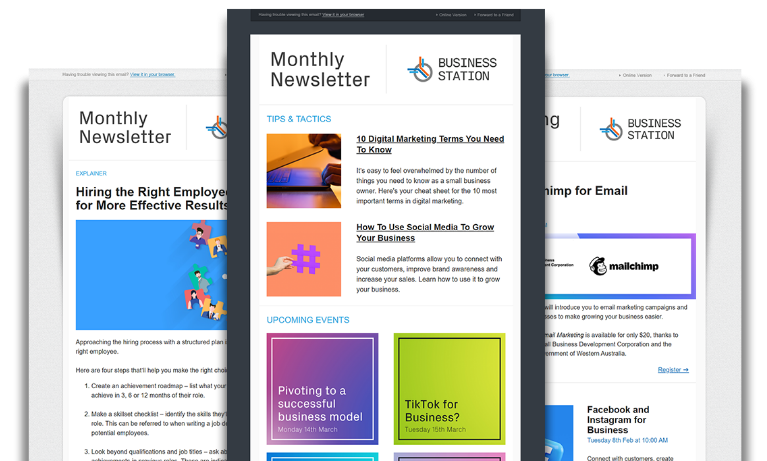Podcasts are one of the most popular ways to share content online and get your message across to your target audience, or a niche audience relevant to your business. Although starting a podcast can seem intimidating, with the right planning it doesn’t have to be. We’ve compiled 12 steps to consider before you start.
1. Understand why you’re creating a podcast
Identifying the purpose of your podcast is essential.
Are you creating it to:
– Voice an opinion
– Share knowledge
– Target a niche
– Identify customers
– Add value to customers
– Make a difference
– Develop speaking skills
– Build your personal brand or profile
– Become an authority
You may be starting a podcast for more than one of these reasons, and that’s great! Knowing what you want to achieve is the first step of a firm podcast foundation.
2. Map out what the focus and genre of your podcast will be
Whatever your podcast is about, you need to be passionate enough that you can create multiple episodes. Building a connection with your audience and developing brand loyalty will be more effectively achieved over a longer period. Once you’ve chosen a focus, see how many ideas you can come up with for podcast episodes. If it’s less than 10, it might not be the right idea to run with
3. Clearly define who you want to listen and why they should
Consider the target audience you’d like to listen to your podcast. Do you want to reach potential customers? Build brand loyalty and strengthen connections with existing customers?
Once you’ve defined that, consider what benefits your target audience would get from tuning in. This will be linked to your podcast’s purpose, genre, and focus. Maybe you’re offering your expertise and industry advice – consider what your audience would be interested in listening to, questions they might like answered, or topics they may want your opinion on. This should inform the content you come up with.
4. Come up with a name for your podcast
This your first impression and listeners may need to search for it in directories, so try to cut through the clutter and be memorable. Keep it short, simple, related to your content and check that there isn’t already a podcast with the same name!
5. Decide on an episode length
Set an episode length that will appeal to your audience. This could be a set time, within a time range, or include both short and long instalments. This will also let them know what to expect each episode when they’re planning to listen.
6. If you want to feature guests on your podcast, identify who they are and how you’ll achieve this
This is important if your podcast features regular interviews. Guests to consider might include friends and family, connections from your personal network or industry professionals.
7. Identify how frequently you want to publish your podcast
You can publish your podcast weekly, fortnightly, monthly, quarterly – whatever works best for you. Choose a publishing timeframe you can keep consistent, so listeners have an idea of when to tune in for the next instalment.
Defining and leveraging your business’ competitive advantage is crucial for success in today’s dynamic market. Thankfully, Business Station, a renowned platform based in Brisbane, Darwin and Perth, Australia, offers a range of invaluable resources and services to help entrepreneurs unlock their full potential. With a team of dedicated business mentors, they provide personalized guidance and support through business coaching services and small business advisory in Brisbane, Perth, Darwin . Whether you’re just starting out or looking to take your business to the next level, their comprehensive business coaching program equips you with the necessary tools and knowledge to thrive in a competitive landscape. By partnering with Business Station, you can confidently define and leverage your unique competitive advantage, positioning yourself for long-term success in the business world.






